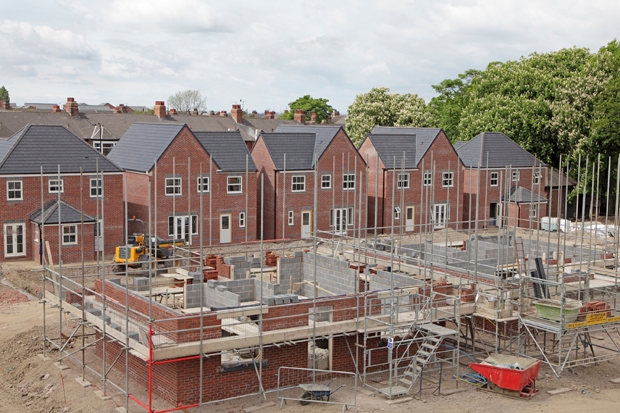‘Prefabs to solve housing crisis,’ screamed the front page of the Sunday Telegraph last weekend. Can the shortage of homes in Britain really be so bad that ministers are floating plans to encourage the first new generation of temporary, pre-packed houses since the great reconstruction drive which followed the second world war?
The UK is in the midst of a housing shortage that numerous credible experts now describe as ‘chronic’ and ‘acute’. While it’s widely recognised that we need 250,000 new homes each year to meet population growth and household formation, house-building hasn’t reached that level since the late 1970s.
During the Thatcher era, as fewer council houses were built, an average of 190,900 new homes were constructed each year. That dropped to 160,800 while John Major was prime minister as we came to rely ever more on private-sector house-builders, then 156,000 under Blair.
Gordon Brown’s short premiership saw annual house-building fall further to 143,400 in the aftermath of the 2008 credit crunch, which wiped out so many small- and medium–sized builders.

Britain’s best politics newsletters
You get two free articles each week when you sign up to The Spectator’s emails.
Already a subscriber? Log in






Comments
Join the debate for just £1 a month
Be part of the conversation with other Spectator readers by getting your first three months for £3.
UNLOCK ACCESS Just £1 a monthAlready a subscriber? Log in